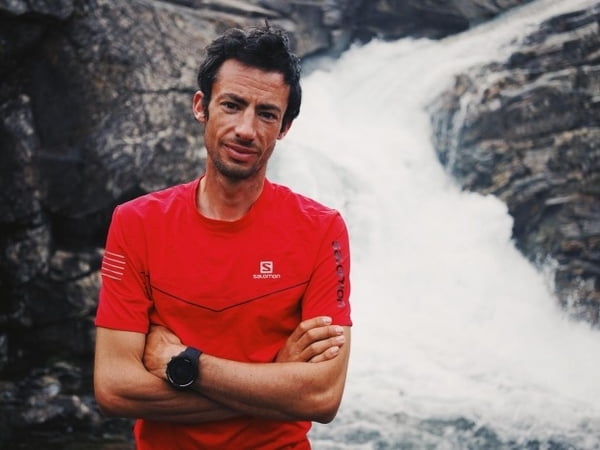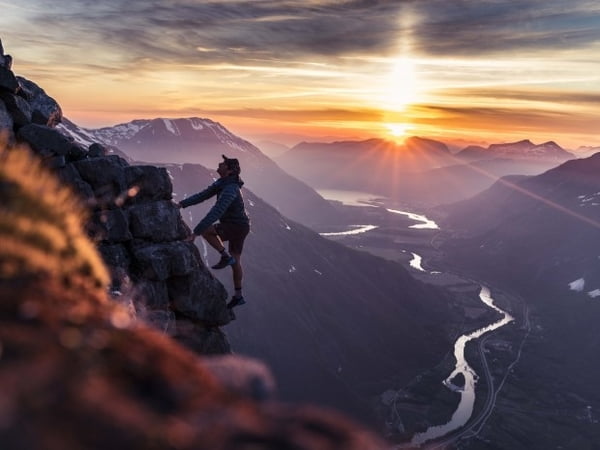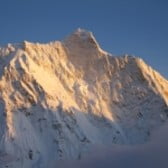
Daily Mountain
48 years, Australia
The Man Who Ran up Everest Twice in a Week
Such are the achievements of Kilian Jornet, the world’s greatest mountain runner, that he’s started to invite description usually reserved for the supernatural. “I’ve heard he can run all day on a handful of berries.” “Apparently he doesn’t sweat.” “When he won Western States, he tamed a mountain lion on the way round and taught it to speak Catalan.” So when Jornet walks into the function room of an east London pub, it’s a surprise to discover he’s disarmingly... human. In person, the man who ran up Everest twice in a week is softly spoken and self-effacing. True, his 5ft 7ins frame and 58kg bulk bring him in line with the elites of road racing, but there’s nothing showy about the 31-year-old. He’s simply the greatest at what he does. And, as he tells RW, his success is founded on a lifetime of training and a love for the mountains…
 Photo credit: Pep Cuberes / Lymbu
Photo credit: Pep Cuberes / Lymbu
Some people seem to think you operate on a different plane; that it is, in some way, easier for you than it is for others. What do you say to this?
That it’s the same for me as it is for everyone else. If I’m able to perform well, it’s because I have been training for, I think, the last 15 years for at least 1,000 hours a year. It took maybe five years to be able to build a base, and then I started to get results. It’s true that I’m good in cold weather because I don’t sweat much. But I’m horrible in hot weather for the same reason: I don’t sweat much so I don’t cool down my body.
You broke Billy Bland’s long-standing Bob Graham Roundrecord this year. What are your memories of that day, and does it make you want to try any other of the UK ‘rounds’?
It was good conditions and I had a very good team of people – and it was still very difficult. It made me realised how impressive Billy [Bland’s] time was because I had the best pacers who knew every part perfectly. Also, I had Billy’s time to aim for; when Billy did it, he was doing it with no references. The Ramsay Round [in Scotland] is one of the ones I’ve had in my mind for a long time. I don’t know when [I might do it], but it’s one I’ve been looking at.
You’ve mentioned in the past that you like to race using all your senses – sight sound, smell, touch, taste. How does this holistic approach help you when racing?
When racing, the more aware you are, the more you can focus and be precise. I try to enjoy it. When we train or race, if you can enjoy it the whole way, not just be pushing the whole time, but looking around at the landscape – the smell, the flowers – it helps.
You seem to favour a minimalist approach when it comes to kit and nutrition. What are the essential pieces of kit you use to move fast and light in the mountains?
 Photo credit: Kilian Jornet
Photo credit: Kilian Jornet
The essential thing is not material: it is experience. Experience gives you a sense of what you need to take, and that depends on where you’re going. For Western States, for example, you need something protect you from the heat and maybe salt pills [to ward off cramp]. For the Bob Graham, it might be shoes with good grip and some kind of waterproof. The important thing is to know the weather and conditions. If you haven’t got much experience, you need to take more. If you’re thinking, ‘Should I take this or not?’ You need to take it. With experience, you can start taking things away.
The mountains have given you many things: great joy, a glittering career. But they’ve also taken things from you: two of your close friends perished on mountain expeditions. How do you balance the risk vs reward of what you do?
If you think about it rationally, what we do is stupid. Why climb mountains? It’s only to find emotion – and that’s the reward. We know there is a possibility of dying, but that’s the same as when driving. Life is for living. And to live is to do the things that you love.
Your parents encouraged you to explore the mountains from a young age. You’re about to become a father yourself; will you take a similar approach with your child?
Yes, I think so. I would love to give them the same connection to nature, to understand how the earth works. Being outdoors – it can be running, skiing or trekking – gives a sense of personal responsibility, and that’s something I’d like to share with our kid. But it’s the kid’s choice whether they want to continue.
The legendary Italian mountain climber Walter Bonatti once wrote: ‘The mountains are the means, the man is the end. The goal is not to reach the tops of the mountains, but to improve the man.’ To what extent was the ‘Summits of My Life’ project less about the summits themselves, and more about testing your own limits?
It’s funny because it’s changed. When I started the Summits of My Life project, I was in a competition mindset. The records were the number-one goal. During the process, meeting different people, this has completely changed. On the most recent expeditions, the records haven’t been the priority at all – they’re just a consequence of the style.
There was some speculation online earlier this year about what time you could run for a road marathon, should you ever be interested in doing so. Does a road marathon hold any appeal to you whatsoever?
It’s on my mind, but not as a big goal. If I wanted to do something good, I would have to train for at least six months, to change the muscle composition and biomechanics. And I don’t know if I want to spend my time doing that. But I won’t say that I’ll never do it. I do have this curiosity. But it’s about finding the time and motivation to say, ‘OK, I have six months and I want to do this, and not ski or climb.’
This article first appeared on www.runnersworld.co.uk. The original can be read here.





